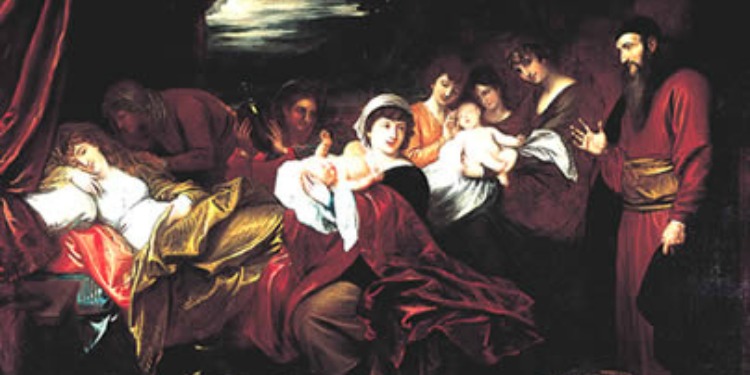The Birth of the Jewish Nation
The Fellowship | November 21, 2017

The Bible portions we have been reading in synagogue every Sabbath – here in Israel and around the world – relate a narrative that begins with Abraham receiving God’s blessings, God’s promise to make Abraham’s offspring into a great nation, and His promise to give the Land of Canaan to Abraham as an inheritance.
The blessings Abraham received came with God’s guarantee – that is, they are irrevocable and eternal. However, these blessings would not be bestowed on Abraham’s entire household. Instead, it was Isaac, the son of Abraham and Sarah, who would be charged with carrying on his father’s mission, as the bearer of God’s blessings and promises.
As God appeared to Abraham, so too He appeared to Isaac, affirming the covenant He had made and confirming His approval of Isaac as the true inheritor of Abraham’s mission.
Isaac had two sons, Esau and Jacob, and here we find a house divided. Only one son would inherit the covenant, and as a result, a split between Isaac’s choice and his wife Rebecca’s choice emerged. The key to understanding this story, and how Divine providence nurtured the birth of the Jewish nation, is the word choice.
The biblical characters were the righteous forebears of the Jewish people. They were prophets who communicated with God and had dedicated every moment of their lives to understanding and fulfilling God’s will. Yet, they were not saints. They were human, and as humans, they had to make choices, and those choices were not always clear.
Isaac chose to believe that his first born son Esau – who the Bible paints as a very troubled and menacing character – was the true heir to the glorious destiny his father Abraham had handed over to him.
But Rebecca saw things differently. And like Sarah, who saw with her prophetic vision that only Isaac – and not Ishmael – was destined to carry the torch of monotheism which his father ignited, Rebecca was able to see that her son Esau was the wrong choice.
The divide between Isaac and Rebecca plays out with the brothers, as well, whose struggle over who would lead the family and who would carry its glorious destiny into the future began in utero.
“The babies jostled each other within her,” Genesis 25:22 reveals. This constant struggle happening within Rebecca’s womb caused her to fear that she would not carry these children to birth. And the Bible describes her frustration as she cries, “Why is this happening to me?”
The conflict described in the story of Rivka’s pregnancy is symbolic of the struggles which brought the Hebrews from slavery to a great and free nation, and is foretells the future Jewish nation and its struggles with other nations throughout history.
Jacob eventually outsmarts his older brother, and with the guidance of his mother, in one of the most fascinating and cryptic episodes in Genesis, tricks his father Isaac into giving him the firstborn blessings and the mission to carry the torch of the covenant.
It is very difficult to understand some of the choices made by the biblical characters whose decision to act changed forever the course of history.
How did Isaac not see what Rebecca saw in Esau, to the degree that he was ready to place the destiny of God’s covenant in Esau’s hands?
Does the Bible tell us whether Rebecca and Jacob acted in accordance with God’s will, by deceiving Isaac into giving Jacob the blessings he intended for Esau.
In the next piece, I will try to offer some answers to these questions while exploring the continuation of the story, as we find Jacob on the run from Esau, who intends to take his brother’s life by the sword.
-Ami Farkas
